I read an interesting question from a new investor regarding whether it was better to invest for a home downpayment in a regular, taxable account or in a Roth IRA. This is really an interesting question and worthy of an article. As is usually the case with any personal finance question, the right answer depends on a lot of things. But if I were forced to make a general statement, I would say, no. Here’s why.
(Note, this post contains affiliate links. This means that we make a small advertising fee when you click through a link and buy something on Amazon. This costs you nothing extra and keeps these articles free for you. You can also help us out, and help yourself by learning a lot more about investing and personal finance, by buying a book.)

Please note that this article contains a lot of tax information since we’re dealing with tax-advantaged accounts. This information is believed to be accurate as of the publishing of this article, but tax laws change all of the time, and there are often a lot of caveats that change the results, so you should consult with a CPA or do a lot of your own research before proceeding. The author of this article is not a CPA. Links to to the sources of information presented are included where possible and these references should be consulted and their veracity assessed by the reader.
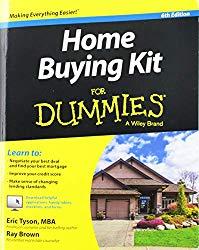
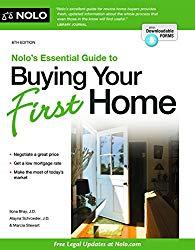
Before you get started, you need to get out-of-debt.
Before you even start to save for a home, make sure you’ve knocked out any credit card debt and gotten a good, solid budget in place. The master of getting out-of-debt is Dave Ramsey. Take a read and maybe even find an offering of his class, Financial Peace University at a location near you. Buying a home while you’re under credit card and other high-interest debt will not be the blessing it will be if you get on firm-footing first.
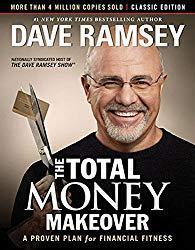
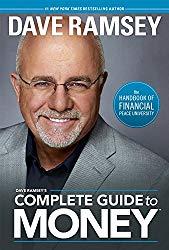
The basics – what is a Roth IRA?
An IRA, or Individual Retirement Plan, is an account created through an act of the federal government to encourage people to save for retirement. The original IRA, now called a traditional IRA, allowed you to contribute a certain amount each year from money you earned and deduct the amount you contribute from your taxes. When you reached retirement age, you would then pay taxes on the money you were taking out, which now would include both the money you put in and anything you earned on the money from investing, just as if you were earning that money from a job. Other than this tax deferral, there is no difference between an IRA and a standard brokerage account. In both, you can buy and sell stocks, bonds, mutual funds, and other types of investments. Even gold and silver bars.
(If you’d like to learn more about investing, the SmallIvy Book of Investing: Book1: Investing to Grow Wealthy is a good place to start. The book covers all of the types of investments most individuals would make, including how they work and the risks involved.)


A Roth IRA, named after the Senator who was instrumental in its creation, William Roth, was an improvement on the traditional IRA. With a Roth IRA, you no longer are able to deduct your contributions from your income in the year you make the contribution, but both your contributions and your earnings can be withdrawn from your IRA totally tax-free once you reach retirement age! For many people, this creates a big tax savings. Plus, you don’t need to worry about paying taxes again once you’ve put the money into your Roth IRA. You just withdraw it and use it as you need it in retirement. This, along with many other benefits, are making Roths the preferred account for many people.
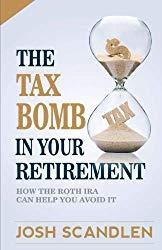
Quirky bit of math: Because you get a tax break with the traditional IRA, if you invest the tax break savings in your IRA, you’ll actually end up with exactly the same amount at retirement after you pay the taxes on your withdrawals as you would have if you had invested your after-tax money in your Roth IRA, if your tax rate at retirement and when you’re working is exactly the same. For example, let’s say you were in the 15% tax bracket and you could make a $6,000 contribution to your taxable IRA or a $5100 contribution to a Roth IRA — the amount you’d have after paying 15% taxes on the money. If both accounts grew at a steady 7% per year, in 30 years you’d end up with $45,673 in the traditional IRA or $38,822 in the Roth IRA. After paying 15% taxes on the money in the traditional IRA, you’d have $38,822. This is exactly the amount that you had in the Roth IRA.
The reason most people end up better off with the Roth IRA is that 1) they are in a higher tax bracket when they’re in retirement than they were when they were working since they have IRA accounts worth millions of dollars and end up drawing out hundreds of thousands of dollars per year and 2) rather than investing just the $5100 left after taxes, most people would go ahead and find the extra $900 somewhere else and put a full $6,000 in the Roth IRA. They would, therefore, be investing more than they would be in the traditional IRA. Note that you would not do better if you invested the extra $900 in taxes you saved from investing in the traditional IRA in a taxable account since the extra taxes would reduce the amount of compounding you would get.
Buying a House with a Retirement Account?
Beyond allowing tax-free withdrawals of both contributions and earnings at retirement time, the Roth has a special feature when it comes to home buying:
If you are buying a first home, you can withdraw up to $10,000 from a Roth tax-free!
Normally you would be assessed a 10% penalty if you pulled your money out before retirement age, plus you’d pay taxes on the earning for doing so. A special exception is made, however, if you’re buying a house. This means that you could grow your money in the Roth and then pull it out for your down-payment, saving on taxes.
You can do this, but there are considerations.
While this may seem like a no-brainer (not paying taxes versus paying taxes), there are some important considerations. These are:
1. You need to keep the money in the Roth IRA for at least 5 years.
2. You are limited to $10,000.
3. You are limited in how much you can contribute to retirement accounts so you might be robbing your retirement savings to buy your home.
4. You are investing for a relatively short period of time, where your investment returns might be low or even negative.
Let’s look at each of these issues:
Who wants to wait?
The first restriction – the need to have the money in the account for at least five years – might be an issue for some since it means you’ll need to wait longer to get into your home. It also means that you’ll be paying rent for five years, which means you’re building up equity for someone else and not yourself. Still, if you start your Roth IRA really young, like using proceeds from a summer job in college so that you’ll have the money in there for five years by the time you’re 23, this might not be so bad. Most people aren’t thinking about buying a home while they’re in college, and any money earned goes towards tuition and college life, so this is not likely to be possible very often. (Caveat: Parents can give a fair amount to their children tax-free each year, so they could give their children money for living expenses, freeing them up to contribute their salary to an IRA. If you have your parent’s help, this becomes easier.)
Low limits. Sure, $10,000 may seem like a lot of money, but when it comes to buying a house, you’ll want to start out with a down-payment of at least 20%. This will save you from paying for mortgage insurance, plus it will save you many thousands of dollars over the life of the loan. Given housing costs, you’re probably looking at a $40,000 to $80,000 down-payment even for a first home. $10,000 just isn’t going to cut it. Now, sure, at least it is something, and you can at least use $10,000 from the Roth and find the rest of the money elsewhere, perhaps in a taxable account. But given that you’re only able to withdraw $10,000, even if it were all earnings from your investments, you’d only be saving $2200 if you were in the 22% tax bracket. Most young people buying a home would be in a lower bracket, so you might only be saving $1200 or even $1000.
Furthermore, because you are required to withdraw contributions from a Roth before earnings, and given that in five years you’d be lucky to double your money once, most people would be saving $600 or less in taxes. I’m not one to scoff at $600, but that’s a lot of work and accounting to save only $600.
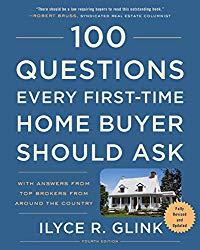
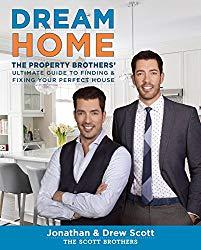
Robbing the future you. Another issue with using a Roth to invest for a home is that you are limited in how much you can contribute to your retirement accounts. With an IRA alone, you’re only allowed to contribute up to $6,000 for 2019 (these rules are complicated since limits are lower depending on a lot of factors, so check with an accountant for your particular situation). While you’ll be lucky to save a dollar for every five dollars you contribute to your Roth when using it to buy a home, if you leave the money in by the time you’re ready to retire you’ll be getting about 130 dollars in earnings for each dollar that you contribute when you’re in your early twenties.
You really want to be putting as much money away early as you can for retirement since you get this great multiplying effect, but most of the multiplication happens thirty or forty years after you put the money in. If you’re taking money out to buy a home, you’ll lose all of these future earnings. If you’re going to be contributing well below the limits for retirement accounts otherwise and you, therefore, have room to put some home buying money in a Roth, it might make some sense to do so for the tax savings. If you’re trading retirement dollars for home dollars, however, it is clearly a poor financial move.
Note that the real reason the home buying exception exists in a Roth was that lawmakers wanted to make it easier to buy a home. Since many people have trouble saving up a down-payment, they figured that allowing them to use a Roth would make it easier. Unfortunately, in doing so, lawmakers encouraged people to take money out of their retirement plans early. Given how difficult it is to get people to start saving for retirement early, encouraging people to rob their retirement accounts was not a wise move.
The main reasons 401k’s and IRAs are not performing as well as traditional pension plans in providing people the money they need for retirement is that workers can rob these accounts where there is no way that they can get their pension money early. Even though they pay taxes and a fine when making early withdraws without using an exception such as buying a first home, many people do so anyway. This is going to lead to a lot of poor retirees in the future that society will need to deal with.
If you don’t want this to include you, please check out my latest book,
FIREd by Fifty: How to Create the Cash Flow You Need to Retire Early. This book will show you step-by-step how to setup your finances to become financially secure, both at retirement and before.
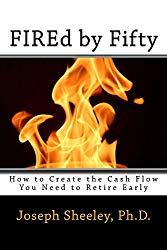
Investing for short periods of time isn’t really investing. A final issue with using a Roth IRA for investing for a home downpayment is that your returns may be small or even negative over such a short time period. While you’re virtually guaranteed to make money if you invest properly and stay in for a decade or more, there are some periods of five years or less when a huge bear market takes everything down, good and bad, and you end up with less than you started.
This can obviously happen in a taxable account if you’re investing outside of an IRA to save up for a home down-payment, but you actually lose some tax advantages that you would have had in a taxable account when you use an IRA instead. You see, in a taxable account, your net gain for the year is the amount you make on winning positions minus the amount you lose on losing positions. This means that if I make $5,000 on XYZ stocks, but I lose $5,000 on ABC stock and sell them both within the same year, assuming that both positions were both long-term holdings (held a year or more), I would have $0 profit for the year and not owe any taxes on the positions. In fact, if my losses exceed my gains, I can actually deduct up to $3,000 against earnings from other sources, plus I can continue to carry forward any additional loss and deduct it in future years! If I lose money on a position in a Roth IRA account, I can’t deduct it. I therefore just lose the money with no tax benefit. Taking losses are bad enough. It is at least nice to be able to save a little on your taxes when you do so.
Given the 5-year holding period, your chances of losing money on a position will decrease dramatically if, instead of buying individual stocks, you’re buying broad-based mutual funds, like the Vanguard Total Market Index Fund, or even just diversified sector funds like an S&P 500 fund. But it can still happen. It is therefore sometimes better to be investing for a home in a taxable account instead of an IRA account.
Should you be investing for a home at all?
Given the possibility of losing money over the fairly short periods of time, most people will want to be saving for a home, investing the money at all may not make sense. While you’re guaranteed to make maybe 2% per year in a set of CDs, at least it is guaranteed. If you put $5,000 in a mutual fund for three years, you could make 20% per year, or you could lose 3% per year. It all depends on what the market decides to do over that period of time. You may, therefore, decide to just accept that you’ll need to do most of the heavy lifting yourself and not get to use the compounding powers of investing to help you out.
As long as you don’t really need to be buying a home within a certain period of time, however, investing instead of just saving does make sense. While it won’t always work out and sometimes years like 2008 will hit just when you are getting started and your initial investments will be cut in half, much of the time you will be able to do better through investing than you will through strictly saving. Even when bear markets do occur, they may only mean that you need to wait a couple of more years for the markets to recover while you continue to squirrel money away. It doesn’t mean that you will need to give up on your home ownership dreams and become a permanent apartment dweller. There are also ways that you can invest that will increase your odds of meeting your goal within your desired window.
How to invest to buy a house.
Given the issues stated, using a Roth IRA to save up for a home is often not a good strategy. That said, as long as you don’t need to buy the home exactly three years from now or something, proper investing can often reduce the amount that you need to save by allowing you to earn money on your savings while you’re building them. You just need to accept that you won’t be able to predict your account balances, so you’ll need to be opportunistic and take gains when you get them. You might also need to keep investing and waiting longer than you would like before you buy a home.
(In addition to reading the SmallIvy Book of Investing: Book1: Investing to Grow Wealthy, some of the classic books on investing will help provide a good foundation. For example, A Random Walk Down Wall Street,One Up On Wall Street: How To Use What You Already Know To Make Money In The Market and The Warren Buffett Way are all excellent. I would recommend studying each of these if you want to start individual stock investing.)
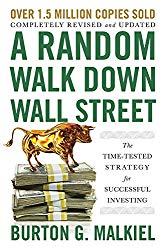
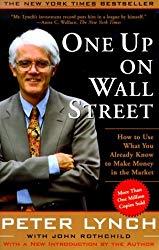
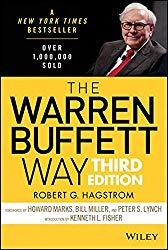
A strategy to use if you want to take advantage of the markets to help you gather together your down-payment might be something like this:
- Spread your money out among different investment types. If you were putting your money away for 20 years, stocks would do better than bonds and other investments where you make most of your money from interest payments. History has shown that you’ll do better investing in growing companies than you will collecting interest payments and dividends. It also just makes sense since you’re taking a greater risk and returns are less certain with stock investing, so the gains are also higher. Over just a few years, however, you may be a lot better off in bonds than stocks. This is particularly true if the market takes a tumble since bonds and stocks that pay large dividends tend to hold their value better than pure stocks. That doesn’t mean that you can’t lose some money if you’re invested in bonds, just that you probably won’t lose as much and you’ll at least be earning dividends and interest while you wait for things to recover. I might start out putting 60% in stocks and 40% in bonds (through index mutual funds) to start and increasing my bond percentage to 50 to 60% as funds built up. I might also throw in some REIT funds, which invest in real estate.
- Build up cash as you make gains. Building money short-term through investing is a bit like playing a game of chutes and ladders. Sometimes you’ll shoot up several thousand dollars because you make a good investment or the market gets on a tear. Other times, however, you’ll see the markets crater and you’ll drop back down. You won’t know what will happen next. To keep from falling back down the slide and losing the gains you’ve made over a year or two, take advantage of big moves up to sell some of your investments and put it into CDs. That way, when a tumble happens, you won’t fall all of the way back to start. You might even take advantage of some tumbles to buy up a few more shares using some of the money you’ve pulled off of the table earlier. Realize, however, that you probably will see further drops after you buy in. You will almost never be able to buy at a bottom.
- Set a goal and get out when you’re there. It is always hard to stop when you’re winning. Casinos take advantage of this fact to keep you at the tables longer, knowing that your luck will eventually change and they’ll get all of their money back, plus some of yours. Before you start investing, set a goal for the amount of money you plan to raise for your home and be ready to pull the trigger when you get there. Do this regardless of how you feel about the markets when it comes time to sell.
- This doesn’t mean you need to stop investing once you reach your goal. Once you reach your down-payment goal and you sell out, this doesn’t mean that you need to stop investing. In fact, a great strategy to help you pay off your house early is to keep investing regularly and periodically pull some money out and throw it at your home loan balance when you have good opportunities. In this case, you can be fully invested in stocks since you no longer have a short time-frame. If things go really well in the first few years, you might knock a lot of the balance off then. If things are bad at first, you might just keep putting some money away and come in after 15 years once the market has recovered to knock out the rest of the mortgage balance.
Like what you’re reading? Keep the blog going – Refer a friend to the Small Investor.Disclaimer: This blog is not meant to give financial planning advice, it gives information on a specific investment strategy and picking stocks. It is not a solicitation to buy or sell stocks or any security. Financial planning advice should be sought from a certified financial planner, which the author is not. All investments involve risk and the reader as urged to consider risks carefully and seek the advice of experts if needed before investing.
Follow on Twitter to get news about new articles. @SmallIvy_SI
Disclaimer: This blog is not meant to give financial planning or tax advice. It gives general information on investment strategy, picking stocks, and generally managing money to build wealth. It is not a solicitation to buy or sell stocks or any security. Financial planning advice should be sought from a certified financial planner, which the author is not. Tax advice should be sought from a CPA. All investments involve risk and the reader as urged to consider risks carefully and seek the advice of experts if needed before investing.
